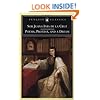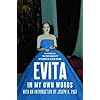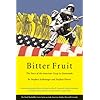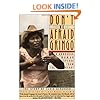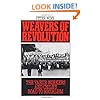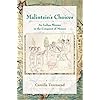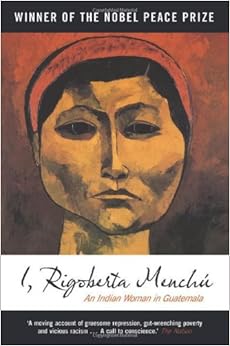
I, Rigoberta Menchu: An Indian Woman in Guatemala
and over one million other books are available for Amazon Kindle. Learn more


Flip to back
Flip to front

I, Rigoberta Menchu: An Indian Woman in Guatemala Paperback – January 12, 2010

$16.16
FREE Shipping on orders over $35.
In Stock.
Ships from and sold by Amazon.com.
Gift-wrap available.
NO_CONTENT_IN_FEATURE
Start reading I, Rigoberta Menchu: An Indian Woman in Guatemala on your Kindle in under a minute.
Don't have a Kindle? Get your Kindle here, or download a FREE Kindle Reading App.
Don't have a Kindle? Get your Kindle here, or download a FREE Kindle Reading App.
Choose Your Own Autobiography
Step right into Neil Patrick Harris's shoes in an exciting, interactive autobiography that places the reader squarely in the driver's seat. Learn more
Step right into Neil Patrick Harris's shoes in an exciting, interactive autobiography that places the reader squarely in the driver's seat. Learn more
Product Details
Would you like to update product info or give feedback on images?.
|
Editorial Reviews
Review
“A moving account of gruesome repression, gut-wrenching poverty and vicious racism ... A call to conscience.”—Nation
“A fascinating and moving description of the culture of an entire people.”—Times (London)
“A cornerstone of the multicultural canon.”—Chronicle of Higher Education
“An extraordinary document.”—Francis Sejersted, Chairman of the Norwegian Nobel Committee
“A fascinating and moving description of the culture of an entire people.”—Times (London)
“A cornerstone of the multicultural canon.”—Chronicle of Higher Education
“An extraordinary document.”—Francis Sejersted, Chairman of the Norwegian Nobel Committee
Language Notes
Text: English, Spanish (translation)
--This text refers to an out of print or unavailable edition of this title.
More About the Author
Discover books, learn about writers, read author blogs, and more.
Customer Reviews
Most Helpful Customer Reviews
198 of 230 people found the following review helpful
By
Michael J. Mazza
HALL OF FAME on January 4, 2001
Format: Paperback
1 Comment
Sending feedback...
"I, Rigoberta Menchu" is one of those books which seems to be overshadowed by controversy. A Quiche Mayan woman of Guatemala, Rigoberta Menchu told her story orally to anthropologist Elisabeth Burgos-Debray in Paris in 1982. Burgos-Debray transcribed the story and published in Spanish in 1983; Ann Wright's English translation appeared in 1984. The book, which both gave a voice to the Native American culture of Guatemala and exposed the brutality of Guatemala's civil war, became an international sensation. Menchu received the Nobel Peace Prize in 1992.
Anthropologist David Stoll later uncovered evidence of inconsistencies within Menchu's story. Conservative cultural activists interpreted Stoll's research as discrediting Menchu's story. For example, David Horowitz blasted Menchu as a "liar" and further condemned "I, Rigoberta Menchu" as "one of the greatest hoaxes of the 20th century." Many derided such attacks on Rigoberta as politically motivated and intellectually dishonest.
I think that "I, Rigoberta Menchu" has, perhaps, been misunderstood and misused by people on both sides of the left/right political divide. And so, for that matter, has the work of David Stoll. While he is sharply critical of the book in his own work, "Rigoberta Menchu and the Story of All Poor Guatemalans," Stoll also corroborates parts of her story. In fact, at the end of his own book Stoll praises "I, Rigoberta Menchu" as a Guatemalan "national epic" (p. 283).
Because of all of the accusations and counter-accusations being thrown around by people with conflicting political and intellectual agendas, it is daunting to even approach "I, Rigoberta Menchu.Read more ›
Anthropologist David Stoll later uncovered evidence of inconsistencies within Menchu's story. Conservative cultural activists interpreted Stoll's research as discrediting Menchu's story. For example, David Horowitz blasted Menchu as a "liar" and further condemned "I, Rigoberta Menchu" as "one of the greatest hoaxes of the 20th century." Many derided such attacks on Rigoberta as politically motivated and intellectually dishonest.
I think that "I, Rigoberta Menchu" has, perhaps, been misunderstood and misused by people on both sides of the left/right political divide. And so, for that matter, has the work of David Stoll. While he is sharply critical of the book in his own work, "Rigoberta Menchu and the Story of All Poor Guatemalans," Stoll also corroborates parts of her story. In fact, at the end of his own book Stoll praises "I, Rigoberta Menchu" as a Guatemalan "national epic" (p. 283).
Because of all of the accusations and counter-accusations being thrown around by people with conflicting political and intellectual agendas, it is daunting to even approach "I, Rigoberta Menchu.Read more ›
Thank you for your feedback.
If this review is inappropriate, please let us know.
Sorry, we failed to record your vote. Please try again
65 of 75 people found the following review helpful
By
Kurt
on February 2, 2000
Format: Paperback
1 Comment
Sending feedback...
Many of those who criticize Ms. Menchu's work subscribe to the fallacy that "I, Rigoberta Menchu" is an autobiography. After David Stoll published "Rigoberta Menchu and the Story of All Poor Guatemalans," Ms. Menchu responded, "'Yo, Rigoberta Menchu' no fue una autobiografia, sino un testimonio." ("'I, Rigoberta Menchu was not an autobiography, but rather a testimony.") Marc Zimmerman, an expert on Guatemalan resistance literature, has stated that testimonial literature implicitly contains the possibility of "other voices." In essence, Ms. Menchu aimed to speak for her community rather than herself. The idea of the collective voice is a well-known characteristic of Mayan culture. There is also a level of common sense that eludes many of Ms. Menchu's critics. Assuming that the book is an autobiography, does it really matter that one of Ms. Menchu's brothers was actually shot by the army instead of burnt alive. This hairsplitting does not conceal the fact that the Guatemalan military committed such atrocities in the death of over 200,000 Guatemalans and the destruction of over 400 villages. "I, Rigoberta Menchu" played a pivotal role in bringing international attention to the plight of Guatemala, which, as Stoll himself acknowledges, few other people could have done. The real question raised by Stoll's book is not who died where and how, but does Rigoberta Menchu truly represent "all poor Guatemalans." To understand Guatemalan history in the early 1980s, I recommend Jennifer Schirmer's "The Guatemalan Military Project: A Violence Called Democracy" and Stoll's more persuasive work, "Between Two Armies in the Ixil Towns of Guatemala." "I, Rigoberta Menchu" has its faults but it is a superb introduction to the debate over recent Guatemalan history.
Thank you for your feedback.
If this review is inappropriate, please let us know.
Sorry, we failed to record your vote. Please try again
23 of 32 people found the following review helpful
By
Candye L. Kane
on December 29, 2006
Format: Paperback
Comment
Sending feedback...
I read this book years ago and re-read it again recently. It is still one of my favorite books. Rigoberta Menchu suffered unbelievable atrocities and incredible losses and still lived to tell her courageous story through an interpreter. I think the book is phenomenal and I recommend it to anyone with a heart. It helps explain a lot about the Guatamalen people and their strife. It also is a timely book since the illegal immigration debate rages on in this country on a daily basis. It paints a vivid picture of the suffering of indigenous peoples and helps us to relate to their need to escape their countries in search of a better life. I dont know what David Stoll had to gain by writing a book that contradicted Menchu's powerful account. She states at the beginning of her book that her perspective is hers alone and that her memories may have been clouded by the trauma. It makes me crazy when people pick apart one tiny aspect of a book and then, throw the entire thing out as a sham. The same thing happened with the James Frey book, A million little pieces. People tended to ignore the overall strengths of the book and his basic message of surviving drug addiction over a few little insignificant details. This book is the same situation. The overall message and story of rigoberta menchu is so powerful and moving, it must be read, even if there is a fact or two that someone wants to contradict.
Thank you for your feedback.
If this review is inappropriate, please let us know.
Sorry, we failed to record your vote. Please try again
13 of 18 people found the following review helpful
By
Dagmar F. Pelzer
on January 10, 2006
Format: Paperback
Comment
Sending feedback...
It is incredible that such human suffering went on, and in many ways is still going on, just a couple of hours (by pane) away from where I live. Rigoberta Menchu's book, written as dictated by her, is sad and tells of horrible situations.
Guatemala is a beautiful country, the indigenous sill dress in their local garb, each unique to a particular village. Guatemala has been referred to as the most exotic country in the Western hemisphere.
A good friend of mine, a Guatemala Indian, told me about the efforts of the Indians to get help from the United States. They sought out various Native American tribes in the U.S., that to them was seeking help from America. From what he told, it never occured to the elders of the Guatemalan groups to approach anyone other than Native Americans. And they did not receive help, because help was not available. But had they approached the U.S. government, they most likely wouldn't have been helped either.
I have been in Guatemala so many times, I started to call it my second home. There is still a lot of oppression, and the indigenous still feel fearful of the police and the military. I have not been there in a couple of years and am yearning to return.
The last time, the police/military made great efforts to change their image. Instead of stopping trucks and harrassing the passengers, they handed out white carnations!
Menchu does not deal with the greatest problem that is keeping the indigenous in danger, that of language barrier. The Guatemala Indians speak over 20 local languages. The languages are so totally different, that communication is impossible. Though some books are written in the local languages, they cannot be read by the indigenous because they are illiterate.Read more ›
Guatemala is a beautiful country, the indigenous sill dress in their local garb, each unique to a particular village. Guatemala has been referred to as the most exotic country in the Western hemisphere.
A good friend of mine, a Guatemala Indian, told me about the efforts of the Indians to get help from the United States. They sought out various Native American tribes in the U.S., that to them was seeking help from America. From what he told, it never occured to the elders of the Guatemalan groups to approach anyone other than Native Americans. And they did not receive help, because help was not available. But had they approached the U.S. government, they most likely wouldn't have been helped either.
I have been in Guatemala so many times, I started to call it my second home. There is still a lot of oppression, and the indigenous still feel fearful of the police and the military. I have not been there in a couple of years and am yearning to return.
The last time, the police/military made great efforts to change their image. Instead of stopping trucks and harrassing the passengers, they handed out white carnations!
Menchu does not deal with the greatest problem that is keeping the indigenous in danger, that of language barrier. The Guatemala Indians speak over 20 local languages. The languages are so totally different, that communication is impossible. Though some books are written in the local languages, they cannot be read by the indigenous because they are illiterate.Read more ›
Thank you for your feedback.
If this review is inappropriate, please let us know.
Sorry, we failed to record your vote. Please try again

